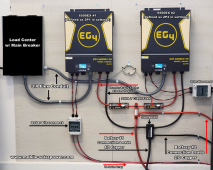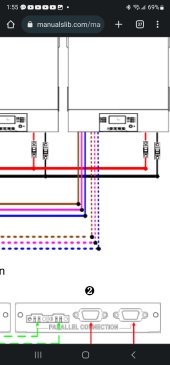I have 2 Orient Power 5Kw @ 100 Amps 48 Volts LiFePo4 wall mount batteries. I plan to purchase more in the future. At the moment, I have a 300 Amp Bus bar to connect all the batteries. The positive and negative 4/0 cables are about 7 feet and go to another 300 Amp Bus bar to distribute positive and negative using 3/0 wire to 2 Orient Power 6.5 Kw inverters. I've been reading up about Breakers vs ANL vs T Class fuses and it seems T class fuses would be best to protect the system.
Can I get away with just one T Class fuse on the 4/0 positive cable between the bus bars or do they need to be on each inverter? What specs do I need to look for? Any suggestions on getting a good deal on one?
Note: all my lug diameter sizes are 5/16.
Can I get away with just one T Class fuse on the 4/0 positive cable between the bus bars or do they need to be on each inverter? What specs do I need to look for? Any suggestions on getting a good deal on one?
Note: all my lug diameter sizes are 5/16.




